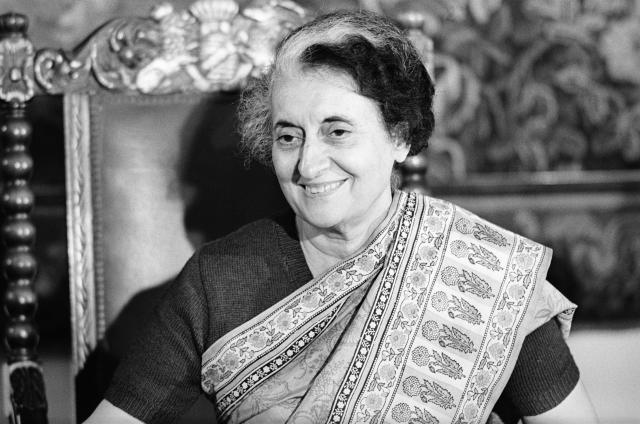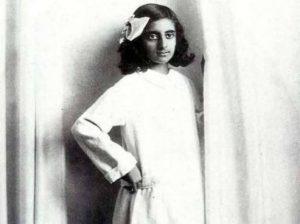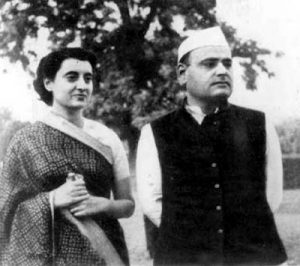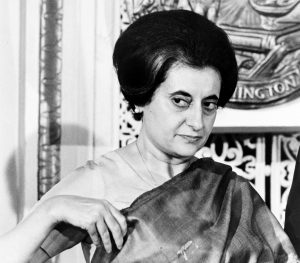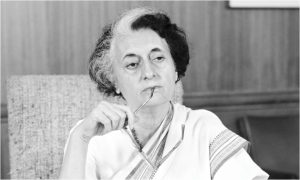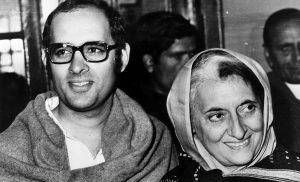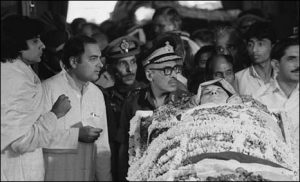Indira Priyadarshini Gandhi – probably India’s most ruthless politician, one who truly understood the ethos of power politics. Being the only child to the then Prime Minister, she grew up as playing among the circles of power.
Born Indira Nehru in a Kashmiri Pandit family on 19 November 1917 in Allahabad, She had a lonely and unhappy childhood. Indira attended many schools and was also taught by various home tutors.
Indira then moved to Europe and enrolled at the University of Oxford. During her time in Europe, Indira was plagued with ill-health and was constantly attended by doctors. She had to make repeated trips to Switzerland to recover, disrupting her studies.
During her stay in Great Britain, Indira frequently met her future husband Feroze Gandhi, whom she knew from Allahabad, and who was studying at the London School of Economics. The marriage took place in Allahabad according to Adi Dharm rituals though Feroze belonged to a Zorastrian Parsi family of Gujarat.
In the 1950s, Indira, now Mrs. Indira Gandhi after her marriage, served her father unofficially as a personal assistant during his tenure as the first Prime Minister of India. Towards the end of the 1950s, Indira Gandhi served as the President of the Congress.
After her father’s death in 1964 she was appointed as a member of the Rajya Sabha and became a member of Lal Bahadur Shastri’s cabinet as Minister of Information and Broadcasting.
In 1966, after Shastri’s death, the Congress legislative party elected Indira Gandhi over Morarji Desai as their leader.
Following a poor showing in the 1967 general election, Indira Gandhi started progressively moving to the left in the political spectrum. After falling out with senior party leaders, she was expelled from the party. Indira then floated her own faction of the Congress party and managed to retain most of the Congress MPs on her side with only 65 on the side of Congress (O) faction.
Indira won the 1971 elections, the highlight of her tenure being India’s decisive victory in the Indo-Pakistani War of 1971 that led to the formation of independent Bangladesh. In the elections held for State assemblies across India in March 1972, the Congress(R) swept to power in most states riding on the post-war ‘Indira wave’.
On 12 June 1975, the High Court of Allahabad declared Indira Gandhi’s election to the Lok Sabha void on grounds of electoral malpractice. Gandhi rejected calls to resign and announced plans to appeal to the Supreme Court.
During 1973–75, political unrest against the Indira Gandhi government increased across the country. Gandhi moved to restore order by ordering the arrest of most of the opposition participating in the unrest. Accordingly, President Fakhruddin Ali Ahmed declared a State of Emergency caused by internal disorder, based on the provisions of Article 352(1) of the Constitution, on 25 June 1975.
The Emergency saw the entry of Gandhi’s younger son, Sanjay, into Indian Politics. It was said that during the Emergency he virtually ran India along with his friends, especially Bansi Lal.
In 1977, after extending the state of emergency twice, Indira Gandhi called elections to give the electorate a chance to vindicate her rule. Gandhi’s Congress party was crushed soundly in the elections by the Janata alliance of Opposition parties.
Since Gandhi had lost her seat in the election, the defeated Congress party appointed Yashwantrao Chavan as their parliamentary party leader. Soon afterwards, the Congress party split again with Gandhi floating her own Congress (I) faction. She won a by-election from the Chikamagalur constituency to the Lok sabha in 1978. However, the Janata government’s Home Minister, Choudhary Charan Singh, ordered the arrest of her and Sanjay Gandhi on several charges, none of which would be easy to prove in an Indian court. The arrest meant that Indira Gandhi was automatically expelled from Parliament.
Before the 1980 elections Gandhi approached the then Shahi Imam of Jama Masjid, Syed Abdullah Bukhari and entered into an agreement with him on the basis of 10-point programme to secure the support of the Muslim votes. In the elections held in January, Congress returned to power with a landslide majority.
In the 1977 elections, a coalition led by the Sikh-majority Akali Dal came to power in the northern Indian state of Punjab. In an effort to split the Akali Dal and gain popular support among the Sikhs, Indira Gandhi’s Congress helped bring the orthodox religious leader Jarnail Singh Bhindranwale to prominence in Punjab politics. Later, Bhindranwale’s organisation Damdami Taksal became embroiled in violence with another religious sect called the Sant Nirankari Mission, and he was accused of instigating the murder of the Congress leader Jagat Narain.
A small section of the Sikhs, including some of Bhindranwale’s followers, turned to militancy after being targeted by government officials and police in support of the Resolution. After several futile negotiations, Indira Gandhi ordered the Indian army to enter the Golden Temple in order to confront those followers of Bhindranwale who had turned to militancy. Indian army used heavy artillery such as tanks and cannons and machine guns in addition with helicopters to crush the Sikhs of Harmindar Sahib. In the resulting Operation Blue Star, the shrine was damaged and many civilians were brutally massacred.
On 31 October 1984, two of Gandhi’s bodyguards, Satwant Singh and Beant Singh, shot her with their service weapons in the garden of the Prime Minister’s residence at 1 Safdarjung Road, New Delhi. Indira Gandhi was brought at 9:30 AM to the All India Institute of Medical Sciences where doctors operated on her. She was declared dead at 2:20 PM. Gandhi was cremated on 3 November near Raj Ghat.
Gandhi was awarded India’s highest civilian honour, the Bharat Ratna, in 1971 for leading India to victory against Pakistan in the Bangladesh liberation war. In 2011, the Bangladesh Freedom Honour (Bangladesh Swadhinata Sammanona), Bangladesh’s highest civilian award, was posthumously conferred on Indira Gandhi for her outstanding contributions to Bangladesh’s Liberation War.

